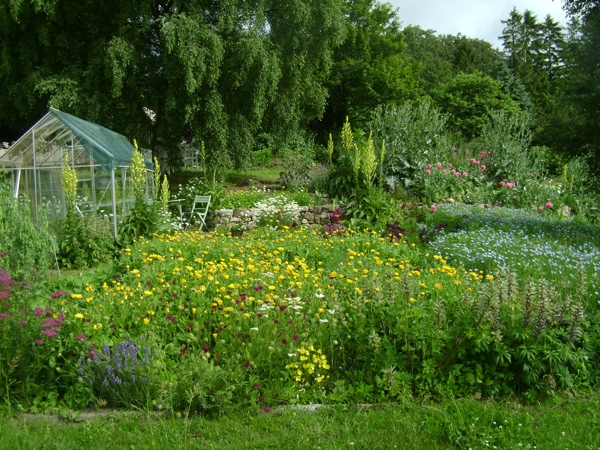Bill Mollison’s original definition of Permaculture:
Permaculture is the conscious design and maintenance of agriculturally productive ecosystems which have the diversity, stability, and resilience of natural ecosystems. Permaculture is working with, rather than against, nature; of protracted and thoughtful observation rather than protracted and thoughtless action; of looking at systems in all their functions, rather than asking only one yield of them; and allowing systems to demonstrate their own evolutions.
In the 1970’s australians Dr. Bill Mollison and David Holmgren came up with new ideas about how to develop agricultural systems to ensure nutrient supply in a better way than traditional and industrial cultivation methods. They studied industrial farming with its monocultures, the use of pesticides with its pollution of soil and water, how biodiversity is reduced and how tons of fertile soil annually erodes. Mollison and Holmgren coined their new way of thinking Permaculture, a portmanteau of permanent agriculture and permanent culture. At first they defined permaculture as planning, development and use of integrated and self-evolving systems of perennial and self-propagating annual plants och animal species in harmony with the environment and the users’ needs. Later on, permaculture developed from the original agricultural concept to a holistic and integrative new way of thinking about how to design a social environment in harmony with nature. It spread rapidly around the world. Furthermore, a natural design method – permaculture design – was developed as well as a concept for quality assurance. The use of permaculture principles to design sustainable habitats in turn led to the formulation of ethical fundamental values that cover ecological, economic and social aspects:
- Treat the earth with respect and esteem (Earthcare)
- Treat people with respect and esteem (Peoplecare)
- Limit consumption and growth, redistribute surpluses
Permaculture feels ethically obligated to give the next generation maximum possibility for design and creation. Earth, water and all other life-upholding resources shall be used and preserved for future use. The guiding principles of permaculture:
- Diversity instead of monoculture
- Sustainable optimization instead of short-sighted maximization
- Cooperation instead of competition
